Despite making up just over 50% of Israeli society today, women will not find themselves equally represented in the soon-to-be-formed government coalition, with just eight women having secured themselves a place in the 65-seat majority coalition. Or, to put it into percentages, just 12.31% of the new coalition will be women.
At the time of its dissolution, the Naftali Bennett-Yair Lapid government had 24 women sitting as MKs and another seven female ministers who had resigned under Norwegian Law. And, not only did their government have the highest representation of women to date, but it also boasted a female party leader - Labor's Merav Michaeli.
The new governing coalition will be made up of four parties - Likud, under Benjamin Netanyahu; The Religious Zionist Party under Bezalel Smotrich; Shas, under Arye Deri; and United Torah Judaism (UTJ) under Moshe Gafni.
A total of five out of the eight women in the next coalition will be from Likud, with the remaining three coming from the Religious Zionist Party. The haredi Shas and UTJ parties do not allow women to join.
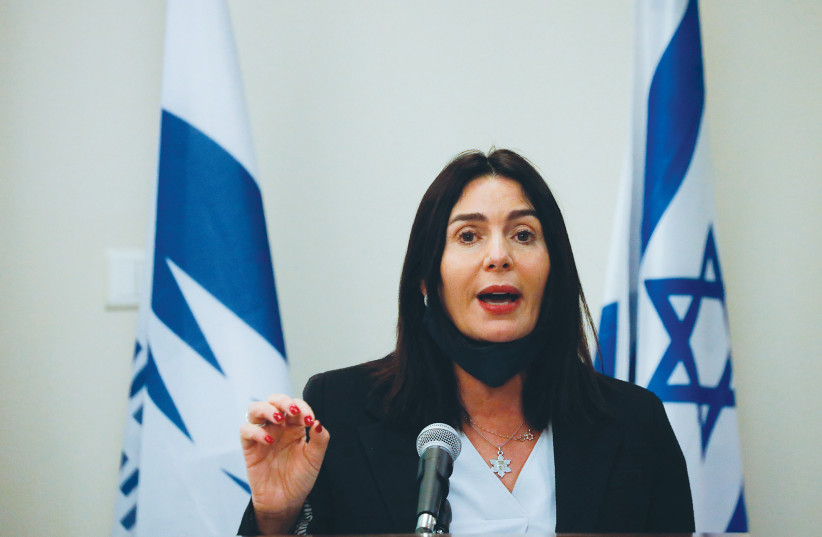
The first woman on the Likud Party list is former transport minister Miri Regev in the ninth slot on the party list.
She is followed by Idit Silman in 16th place, Galit Distal Atbaryan in the 20th slot, newcomer Tali Gottlieb and former social equalities minister Gila Gamliel in slots 25 and 30 respectively.
In the Religious Zionist Party, Orit Struck occupies 4th place, followed by Michal Waldiger coming in 8th, and Limor Sohn Har-Meleh taking 13th place.
Who are the women of the Likud party?
Number 9: Miri Regev
Miri Regev has climbed to impressive heights throughout both her political career and the military career that came before it, expanding the glass ceiling for her female peers. During her 25-year-long military career, Regev served as the head of the IDF's Spokesperson's Unit, becoming the face and voice of the military during both the Gaza disengagement and the Second Lebanon War.
After retiring from the army, Regev joined the Likud party in 2008, securing the 27th slot on the party list. By 2015, however, her popularity parachuted her all the way to 5th place and a job as the country's transport minister.
When it comes to the issue of violence against women, Regev has shown herself to be a vocal person. In August 2021 at the end of a long legal battle after Shira Isakov's ex-husband was convicted of attempting to murder her, Regev shared a statement in favor of the ruling and in support of Isakov.
In her statement, she called Isakov "a model for many women in the fight against domestic violence," and said that "all in society must denounce and fight against violence of any kind against women."
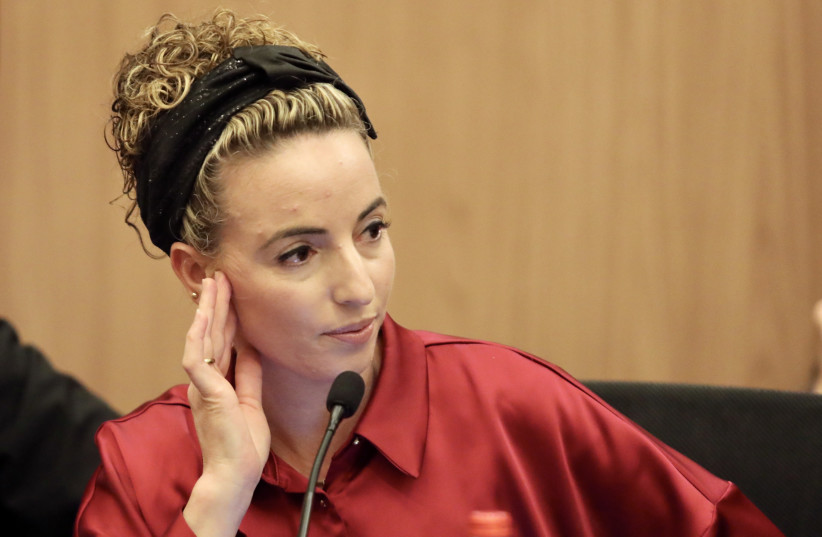
Number 16: Idit Silman
Despite her relatively high slot on the Likud list, Silman wasn't always a member of their party. In fact, until earlier this year, she was a member of Bennett's Yamina, and served as number five on his list. In her role as Coalition Chairwoman, Silman faced fierce opposition, even from her now political partners, some of whom turned to misogyny as a way to target her.
In June of last year, Silman became the target of Likud MK Miki Zohar (now number 10 on the Likud list) during a Knesset session she was overseeing. After Silman failed to turn her attention to Zohar's interruptions, he lashed out at her, saying: "Who are you anyway? Answer me like a good girl."
While Zohar later apologized for his remarks, they nevertheless sparked a conversation about the treatment of women in positions of power.
During her time in the Bennett-Lapid coalition, Silman served as chairman of the Health Committee, placing a focus on women's health, and the importance of including more women in medical research.
After leaving the coalition in April 2022, Silman accused Bennett of attempting to portray her as "weak," and said that he would not have said her decision to leave the coalition was caused by "immense stress" if she was a man.
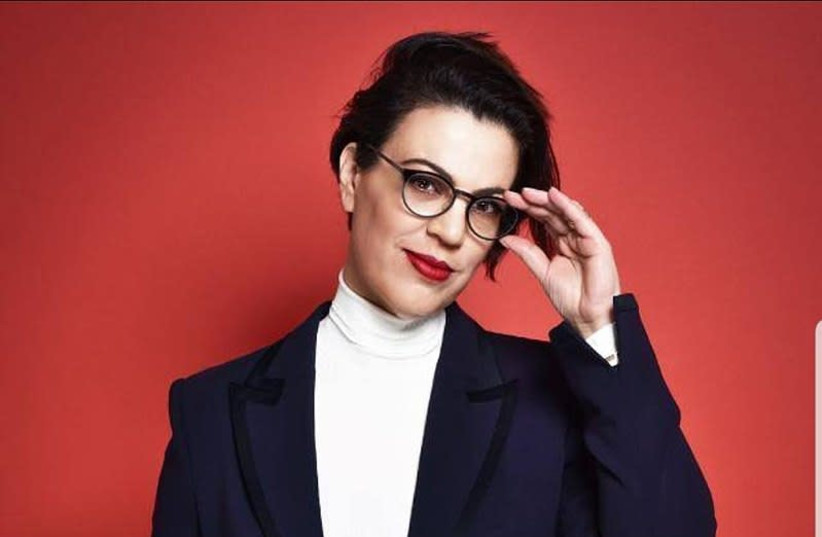
Number 20: Galit Distal Atbaryan
After entering Knesset for the first time in 2021, Galit Distal Atbaryan stressed the importance of freedom and safety for all sectors of society.
"What resonates with me more than anything is not a sense of security, but a sense of freedom," she said at the time. "The freedom of women to walk around safely in the office, on the street, inside their homes. The freedom of Arab women to enjoy one night that is quiet and free of anxiety, without tossing and turning in bed, wondering whether their child will be murdered on the street at night or will return home safely.
"The freedom of Haredi women to choose to partition themselves from men because that is the dictate of their conscience and it is their free, legitimate and full choice."
She also spoke about being a child of Iranian Jews who came to Israel and the importance of being able to live freely as "a Jewish woman building a home on the land of my forefathers."
Number 25: Tali Gottlieb
While the first three women on the Likud list have proven themselves to be advocates for women's rights to varying degrees, the newly elected Gottlieb, who will serve in the slot reserved for new women, is seen by many as controversial.
In her line of work as a defense attorney, Gottlieb, who has said that "the word feminism disgusts [her]" became known for her work defending men accused of sexual crimes, claiming that the number of cases she oversaw was around 5,000.
She drew the ire of women and feminist movements for her comments regarding the "Me Too" movement, about which she said that "if you bring out allegations against a celebrity who just started a new role, and there's no clear explanation as to why you suddenly remembered to do so now, I don't accept it. There's no reason for it not to be vindictive. A string of allegations doesn't impress me either."
"If you bring out allegations against a celebrity who just started a new role, and there's no clear explanation as to why you suddenly remembered to do so now, I don't accept it. There's no reason for it not to be vindictive. A string of allegations doesn't impress me either."
Tali Gottlieb
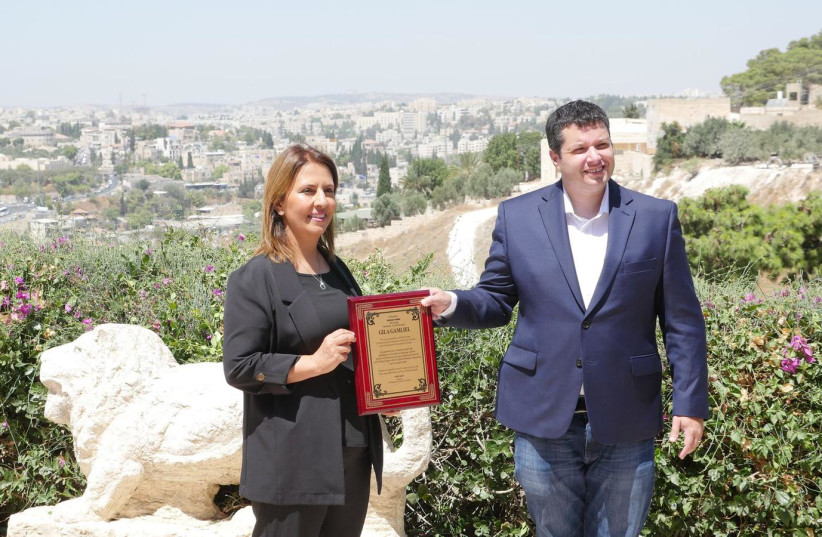
Number 30: Gila Gamliel
When longtime Likud member Gila Gamliel placed 30th on the Likud list after their 2022 primaries, some were concerned that she would not be a part of the 25th Knesset. However, now that she is safely inside, she may choose to pick up where she left off in 2020, as social equality minister.
Prior to serving as the country's first social equality minister between 2015-2020, a role in which she oversaw the rights of senior citizens and youth and the advancement of gender equality, Gamliel held a host of other roles, including chair of the Knesset Committee on the Status of Women.
During her time as minister, Gamliel was noted to have had an excellent relationship with the current chair of the Committee to Advance the Status of Women, Aida Touma-Sliman, and the two worked together frequently in efforts to advance the status of Arab women in Israel. She has stated in the past that one of her main goals was to reduce the disparity between Arab and Jewish women.
Who are the women of the Religious Zionist Party?
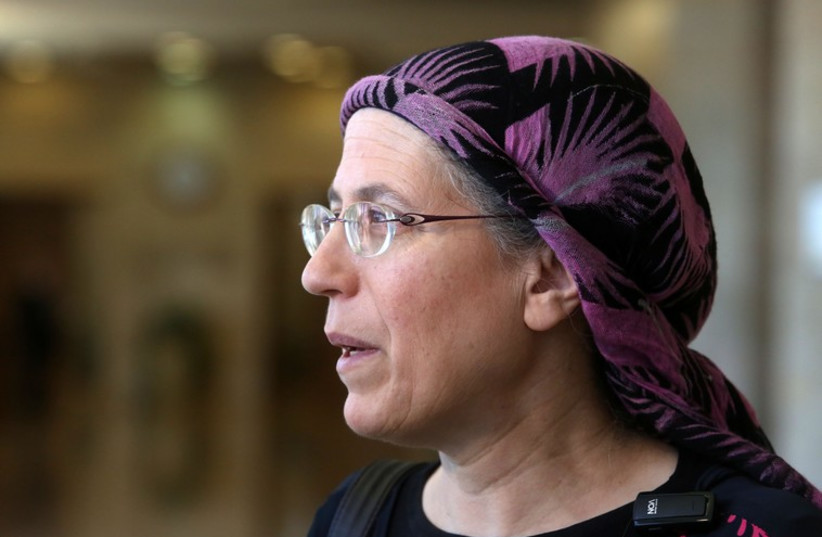
Number 4: Orit Struck
For many religious Zionists, Hebron resident Orit Struck is a feminist figure to look up to, proof that women can also be influential figures in the religious Zionist movement.
Struck was first elected to the Knesset as part of the Habayit Hayehudi list in 2013, but lost her seat in 2015. She then returned to Knesset in 2021 as part of the Religious Zionist Party's list.
Prior to her political career, Struck served as the head of the Women's Committee for the Cave of the Patriarchs, an organization that worked to convince the political system to reopen the cave for Jewish prayer after Kahanist terrorist Baruch Goldstein massacred 30 Muslim worshippers during Ramadan prayers.
In 2014, Struck successfully prevented then-Habayit Hayehudi leader Naftali Bennett from merging his party with the short-lived Ha-am Itanu party, which did not allow women to run on its list.
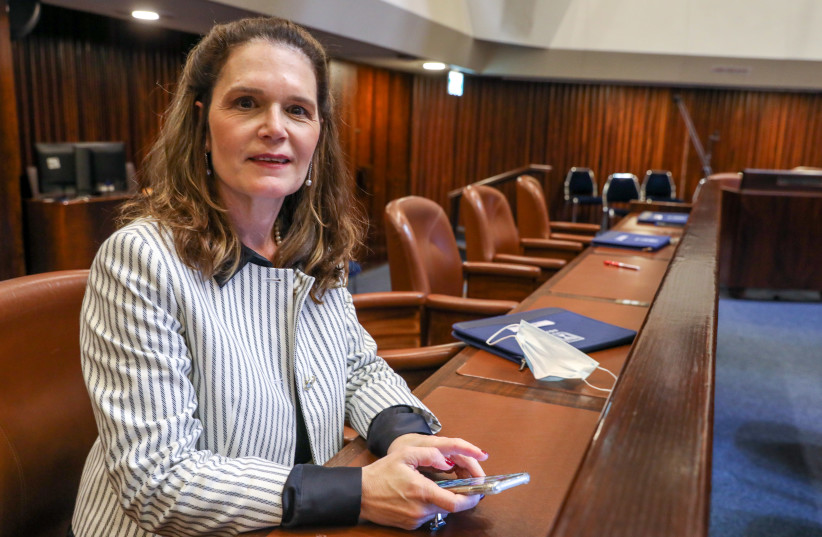
Number 8: Michal Waldiger
Michal Waldiger first entered politics as a council member for Givat Shmuel in 2013, a role in which she held the Welfare Portfolio and served on the Committee for the Advancement of Women. While Waldiger has not specifically made women's issues the center of her portfolio, she has vowed to put mental health at the top of her agenda, and served as the chairwoman for Bat Ami for five years, working religious girls during their National Service.
Number 13: Limor Sohn Har-Meleh
Knesset newcomer Limor Sohn Har-Meleh has not made many public statements on women's issues and rights, if she has made any at all. In 2003, Har-Meleh was seriously injured in a terror attack, and her first husband, Shalom Har-Meleh was killed.
Unlike Struck and Waldiger, who belong to Smotrich's faction of the Religious Zionist Party, Har-Meleh is the first woman to join Ben-Gvir's Otzma Yehudit faction. He welcomed her to the party by calling her a "symbol of Jewish determination" and saying that "a ship with power must have a woman with power."
Israel's opposition sees double the female representation
While Merav Michaeli has held the title of "only female party leader in the coalition" for the past year and a half she will now become the only female party leader in the opposition, with the Israeli Labor Party just scraping by with 3.57% of the vote.
Joining Michaeli in the opposition will be 18 other women, over double the number of women who will be serving in the expected coalition.
Alongside Michaeli will be Labor's Naama Lazimi and Efrat Rayten Marom, meaning that 3/4 of the seats maintained by the party will be held by women.
Joining them in the opposition will be Yesh Atid's female MKs: Orna Barbivai, Karine Elharrar, Merav Cohen, Merav Ben Ari, Michal Shir Segman, Tatiana Mazarsky, Yasmin Fridman, Dvora Biton and Shiri Naor.
From the National Unity Party, Pnina Tamano-Shata, Yifat Shasha Biton, Orit Farkash Hacohen and Sharren Haskal add their voices to the women of the opposition.
Yisrael Beytenu's Yulia Malinovsky, Ra'am's Iman Khatib-Yasin and Hadash Ta'al's Aida Touma Sliman complete the group.
Despite an intense campaign from Meretz in the weeks leading up to the elections, the party failed to pass the voter threshold, garnering just 3.2% of the vote. Had they passed, however, party leader Zehava Galon and Michal Rozin would have brought the number of women in the opposition up to 21.
While it's too soon to know exactly how the makeup of the 25th Knesset will impact the fight for equality, it's safe to assume that the conversation around women's issues in the government is about to become much, much quieter.
